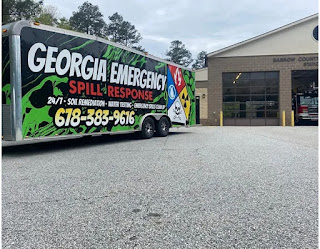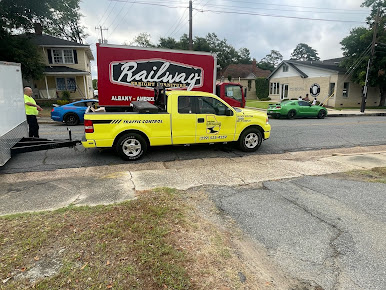Most Common Spill Scenarios in Georgia and How to Handle Them
Spills are unforeseen incidents that can occur in various environments,
from industrial sites to everyday situations like fueling your vehicle.
Working with emergency spill response
service can make a significant difference in mitigating their impact on
the environment and public health. In this post, we'll look at some
spill scenarios and provide solutions to respond effectively.
Oil Spills
One of the most frequent spill scenarios in Georgia involves oil. These spills can happen during transportation, storage, or when machinery breaks down. To address them, the first step is containment to stop the oil from spreading. This can be achieved by using barriers or booms. Next, use absorbent materials like pads or booms to soak up the spilled oil. It's crucial to report oil spills promptly, following Georgia's reporting requirements.
Chemical Spills
Chemical spills often occur in industrial settings and can pose significant hazards. Safety should always come first; protect yourself with safety gear like gloves and goggles. Contain the spill if it's safe to do so, and ensure good ventilation to disperse any potentially harmful fumes. Contact a hazardous waste management service provider in your area.
Hazardous Material Transport Accidents
Accidents involving trucks carrying hazardous materials can lead to spills on roads or railways. In such situations, your safety is paramount. Move away from the accident scene and immediately dial 911 to report the incident. If authorities instruct you to do so, evacuate the area for your safety.
Agricultural Chemical Spills
In farming, spills of pesticides or fertilizers can occur, impacting soil and water quality. When dealing with these spills, prioritize safety by using protective gear. If possible, contain the spill to prevent it from reaching water bodies. Follow guidelines for pesticide or fertilizer cleanup and avoid washing them into storm drains.
Gasoline or Diesel Spills
Spills at gas stations or during fuel transportation can lead to soil and groundwater contamination. For gasoline or diesel spills, containment is crucial. Use absorbent materials and barriers to prevent the spill from spreading further. Notify the authorities immediately and follow guidelines for fuel spill reporting. In the case of larger spills, professional hazardous waste management may be necessary.
About Georgia Emergency Spill Response:
Georgia Emergency Spill Response is your trusted partner in crisis. They specialize in swift, effective solutions for soil remediation, chemical, and hazardous material spills across Georgia. Their experienced team and state-of-the-art equipment ensure a rapid and Eco-friendly response.
Get more details at https://www.georgiaspill.com/
One of the most frequent spill scenarios in Georgia involves oil. These spills can happen during transportation, storage, or when machinery breaks down. To address them, the first step is containment to stop the oil from spreading. This can be achieved by using barriers or booms. Next, use absorbent materials like pads or booms to soak up the spilled oil. It's crucial to report oil spills promptly, following Georgia's reporting requirements.
Chemical Spills
Chemical spills often occur in industrial settings and can pose significant hazards. Safety should always come first; protect yourself with safety gear like gloves and goggles. Contain the spill if it's safe to do so, and ensure good ventilation to disperse any potentially harmful fumes. Contact a hazardous waste management service provider in your area.
Hazardous Material Transport Accidents
Accidents involving trucks carrying hazardous materials can lead to spills on roads or railways. In such situations, your safety is paramount. Move away from the accident scene and immediately dial 911 to report the incident. If authorities instruct you to do so, evacuate the area for your safety.
Agricultural Chemical Spills
In farming, spills of pesticides or fertilizers can occur, impacting soil and water quality. When dealing with these spills, prioritize safety by using protective gear. If possible, contain the spill to prevent it from reaching water bodies. Follow guidelines for pesticide or fertilizer cleanup and avoid washing them into storm drains.
Gasoline or Diesel Spills
Spills at gas stations or during fuel transportation can lead to soil and groundwater contamination. For gasoline or diesel spills, containment is crucial. Use absorbent materials and barriers to prevent the spill from spreading further. Notify the authorities immediately and follow guidelines for fuel spill reporting. In the case of larger spills, professional hazardous waste management may be necessary.
About Georgia Emergency Spill Response:
Georgia Emergency Spill Response is your trusted partner in crisis. They specialize in swift, effective solutions for soil remediation, chemical, and hazardous material spills across Georgia. Their experienced team and state-of-the-art equipment ensure a rapid and Eco-friendly response.
Get more details at https://www.georgiaspill.com/




Comments
Post a Comment